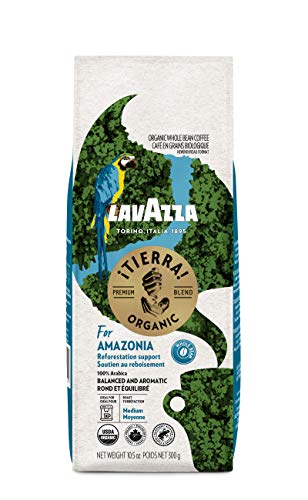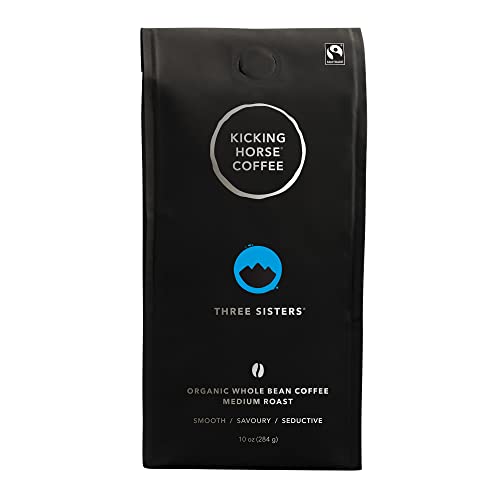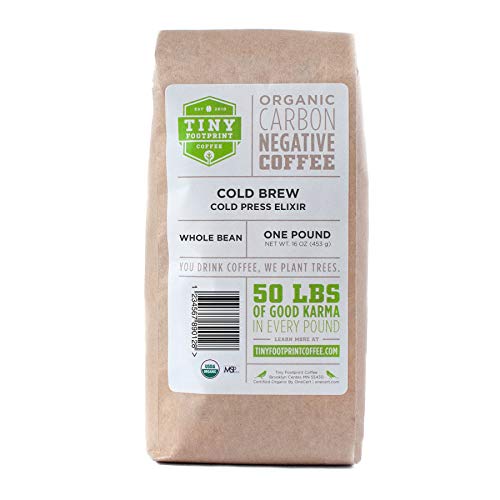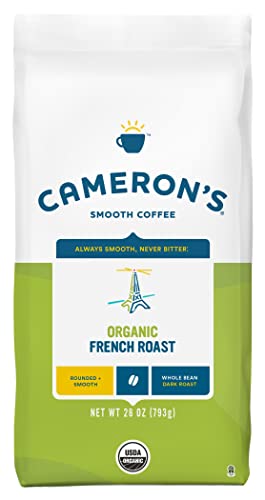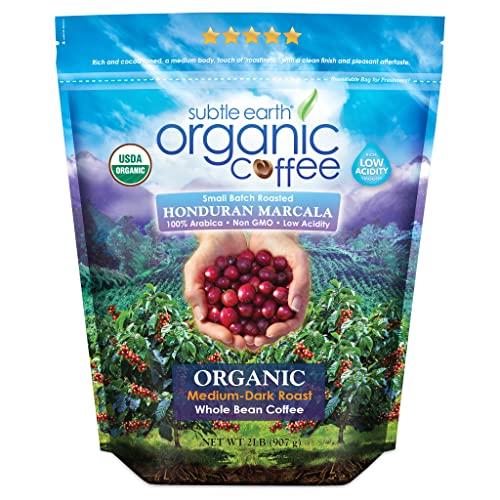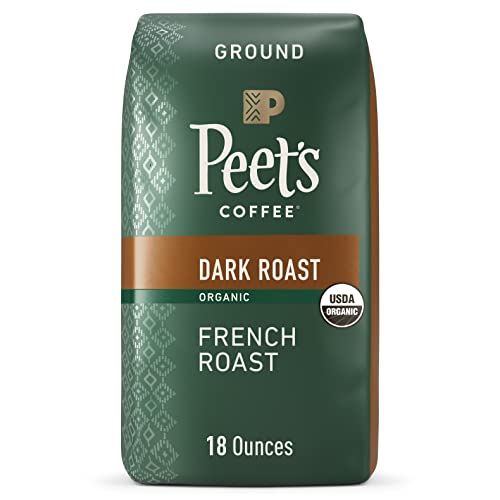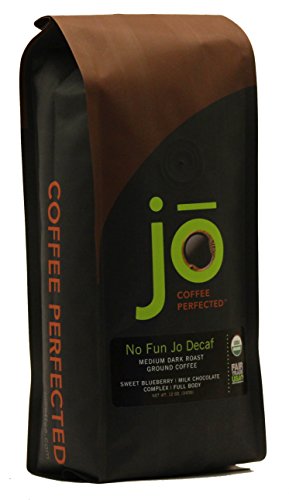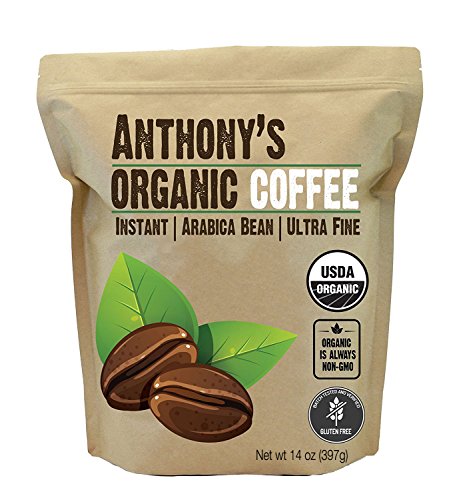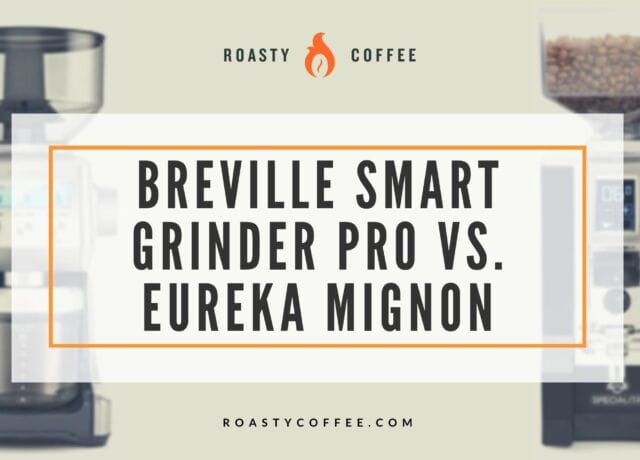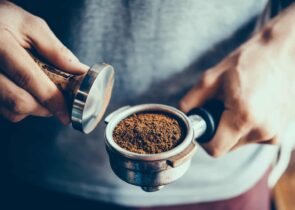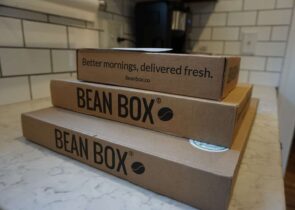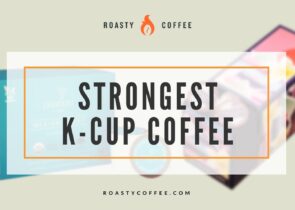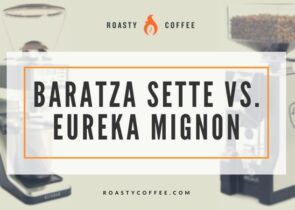At A Glance: Our Top 5 Picks for Organic Coffee
Did you know conventional coffee is one of the most chemically treated foods in the world? Thanks to the coffee cherries’ protective skins and the coffee roaster’s high heat, those chemicals might not affect you very much. But they can impact coffee farmers and the environment in which they work.
Farmers may be exposed to high levels of these harmful chemicals if they handle coffee crops without proper protective equipment. These chemicals don’t only affect people on coffee farms; the runoff has the potential to impact surrounding communities, too.
Recommended: The Pros and Cons of Coffee
The need to provide farmers with safe working conditions and prioritize environmental protection spurred the push to find harmless java production methods people feel they can support. Said push has come in the form of the rapidly growing organic coffee market, a.k.a., the focal point of this article!
An Organic Overview
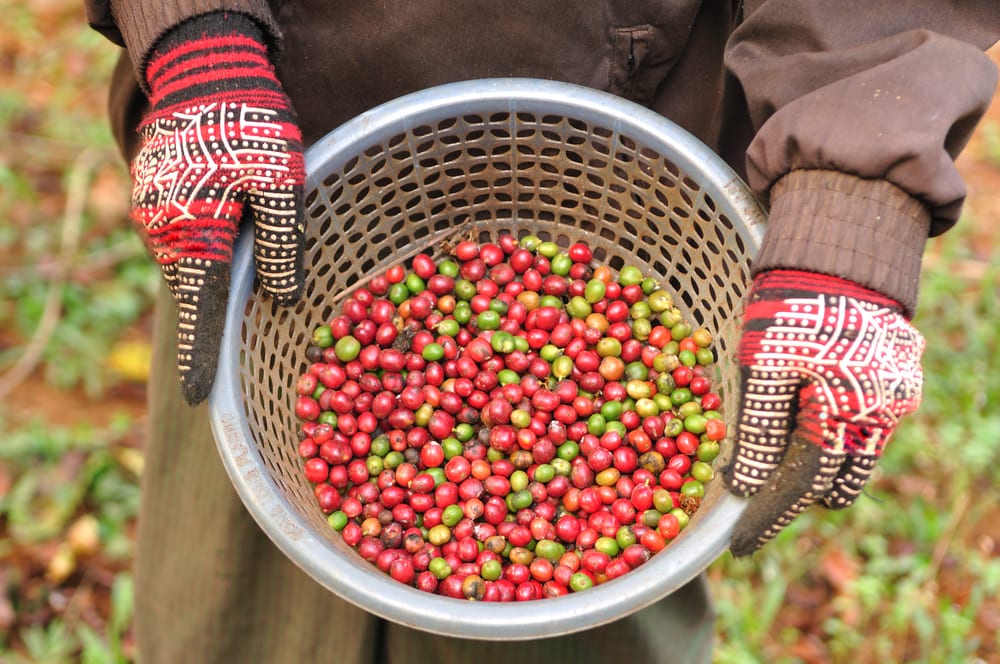
If clean coffee brands hope to bear the organic label, they must exclude synthetic chemicals (like those found in most chemical pesticides/herbicides and synthetic fertilizers) from coffee production. Ninety-five percent of the beans in the batch must have been grown under specific conditions to earn a United States Department of Agriculture (USDA) label:
- The green coffee beans must have come from a plantation or farm where producers actively manage the land to restore, maintain, and enhance local biodiversity and work within the local environment without disrupting the balance of natural ecological systems.
- The USDA-certified organic bean production process must use air, water, and soil pollution-minimizing methods. Organic farming practices must also include traditional methods (like crop rotation, for example) to manage weeds, pests, and soil health.
The strict conditions required for a USDA organic label don’t stop at the farm; they follow the green coffee beans to the roastery, where they must be kept separate from their counterparts not grown with organic farming practices. Organic coffee never comes in contact with anything non-organic joe has touched.
After the production process, when the organic beans arrive at your home or one of your favorite coffee shops, it’s up to you or your barista to maintain their organic heritage. How? With a coffee grinder and brewer that has either been thoroughly washed or never encountered non-organic beans.
Your coffee grounds aren’t technically organic if you don’t take those precautions. Though that doesn’t change joe’s official certifications, it does make all the hard work that went into obtaining a USDA organic certification somewhat of a waste.
What is the certification process like?
Farmers must use organic practices to harvest three consecutive coffee crops before they are eligible for USDA certification. After that, they can request an inspection from a USDA-certified agency. If the inspection report’s findings declare that the farm’s operations comply with organic certification rules, the certifying agent issues an organic certificate for qualifying products.
Are there global standards for organic coffee?
To keep things simple, we only explained USDA organic certification requirements. But for your information, many countries have their own organic standards. However, there is some overlap, as most regions agree that synthetic chemicals and GMOs can’t be a part of organic java production.
Quick Summary: The Best Organic Coffee
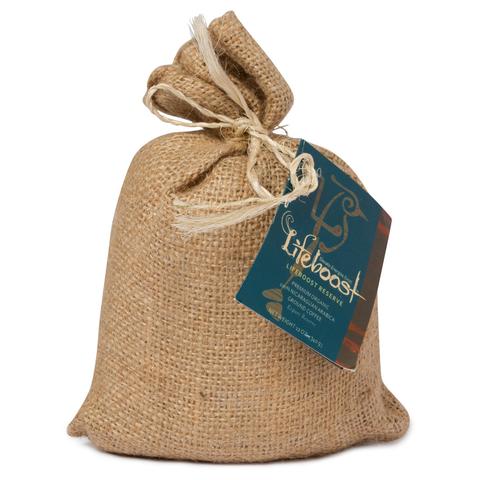 | Our Top Choice LifeBoost Coffee |
| Check On Lifeboost→ |
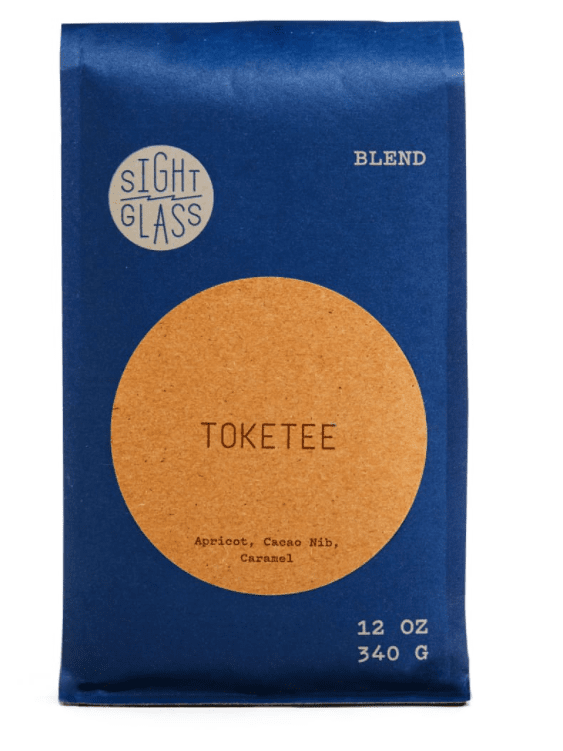 | SIGHTGLASS COFFEE ORGANIC TOKETEE |
| Check Price → |
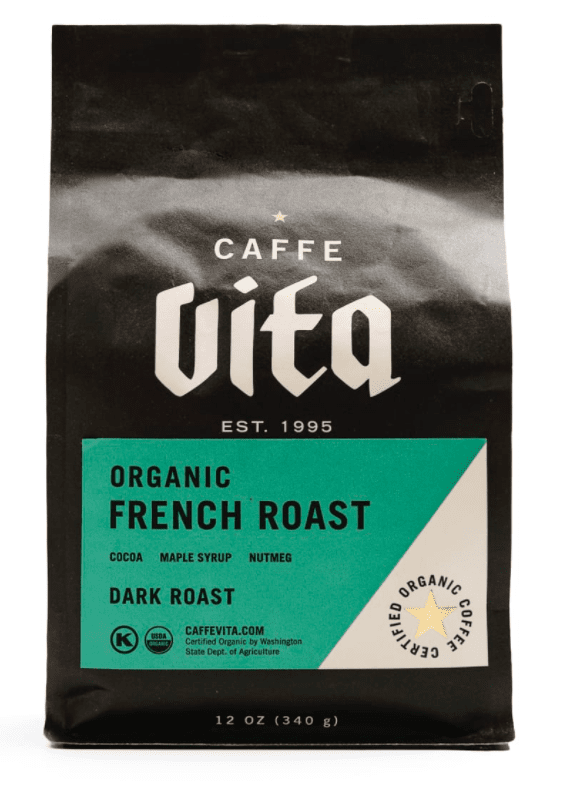 | Caffe Vita Organic French Roast |
| Check Price → |
 | Lavazza Organic ¡Tierra! Amazonia Coffee |
| Check on Amazon → |
 | Kicking Horse Coffee Three Sisters Blend |
| Check on Amazon → |
 | Tiny Footprint Cold Press Elixir Cold Brew Coffee |
| Check on Amazon → |
 | Cameron's Specialty Coffee Organic French Roast |
| Check on Amazon → |
 | CAFE DON PABLO SUBTLE EARTH HONDURAN MARCALA COFFEE |
| Check on Amazon → |
 | REAL GOOD COFFEE CO. ORGANIC DARK ROAST |
| Check on Amazon → |
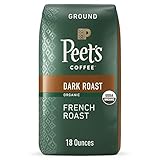 | Peet's Coffee Organic French Roast |
| Check on Amazon → |
 | Jo Coffee No Fun Jo Decaf |
| Check on Amazon → |
De-Mystifying Pesticides
We promise to introduce you to our favorite players in the organic coffee game. But first, we need to have a conversation about pesticides, starting with answering a few commonly asked questions.
Can certified organic products use pesticides?
Yes, they can. In fact, pesticides are necessary for successful plant growth. The key here is using natural pesticides instead of synthetic pesticides with harmful or toxic chemicals.
How do pesticides on coffee plants affect you?
Unlike other farm products, the fruit grown on coffee plantations — coffee cherries — isn’t generally sold. When you peel back the cherry’s skin and the coffee pulp, you uncover the seed, a.k.a., the bean we roast, grind, and filter through a brewing process. Why does this matter? Because it means the chemical residue non-organic pesticides leave behind is not likely to reach the part of the coffee cherry we consume.
Besides, coffee beans spend time in the roaster before they make it to you, often roasting at temperatures around 400 degrees Fahrenheit. So, if any chemical pesticides reach the bean, the roaster’s high heat gets rid of them.
Bottom Line: since chemical pesticides don’t usually make it to the beans or the coffee grounds you brew, they don’t affect you much. But that doesn’t mean they don’t do any harm. These chemicals can negatively impact coffee farmers and their nearby community members; you should be concerned about that.
Talking Toxicity
Things tend to get tricky when you talk about toxicity, but you should know all pesticides, even natural ones, are toxic. After all, isn’t toxicity the point of a pesticide?
Unlike their counterparts made with synthetic chemicals, you can’t tailor natural pesticides to target specific species. So, while a synthetic pesticide may only harm destructive insects, a natural one may target beneficial organisms, too.
Roasty Rankings: Our Top Picks for the Best Organic Coffee
Now, on to the main event: discovering the best coffee beans bearing an organic label! But don’t think organic means exclusive; there’s something here for everyone, whether you want to taste hints of chocolate in your morning brew or prefer earthy flavors. There’s even an option or two for our friends who drink cups of decaf.
LIFEBOOST COFFEE MEDIUM ROAST
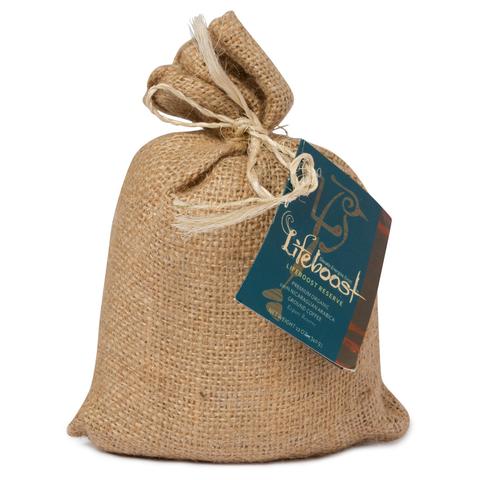
Lifeboost Coffee
Enjoy delicious, healthy, single origin, chemical-free, non-GMO coffee from small farms in the mountains of Nicaragua
Lifeboost Coffee is the brainchild of Dr. Charles Livingston, a chiropractic physician determined to find the cleanest cup of coffee around, and it’s our number-one pick among organic coffee brands right now. All the company’s single-origin beans are USDA-certified organic, but the benefits don’t stop there: Lifeboost joe is also non-GMO, Fair Trade, low-acid, and kosher.
These shade-grown coffee beans come from farms 5,700 feet above sea level in Nicaragua. Come harvest day, producers handpick the joe and roast it slowly, lending the resulting brew a unique flavor profile. The care taken to produce this rich, mellow joe (also available as decaffeinated coffee) shows up in every sip, and its hints of caramel are sure to make your taste buds happy.
We recommended a medium roast, but that’s not all Lifeboost offers. Dark, medium, or lighter roasts, flavored options, and K-Cup pods are also available.
SIGHTGLASS COFFEE ORGANIC TOKETEE
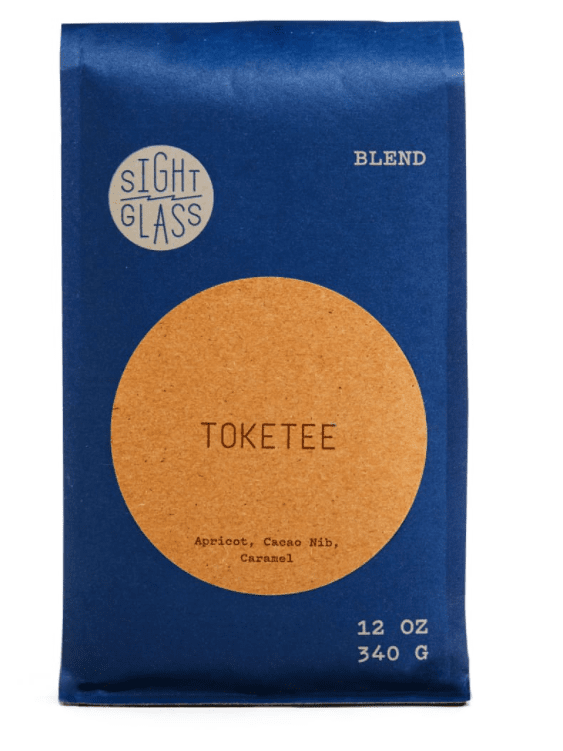
Sightglass Coffee Organic Toketee
You’re fancy, huh? So is this elevated take on the classic drip, blend. It’s carefully curated, seasonally rotating, and of course—cultured.
Sightglass Coffee markets its Organic Toketee joe as “an elevated take on the classic drip blend.” So, if you’re looking for something new to run through your automatic drip machine, this is a worthwhile candidate.
This organic blend combines Pacific, Central, and South American beans roasted to medium-dark roast perfection. When brewed, this java has a sweet and undeniably smooth flavor marked by apricot, cacao nib, and caramel flavor notes.
CAFFE VITA ORGANIC FRENCH ROAST
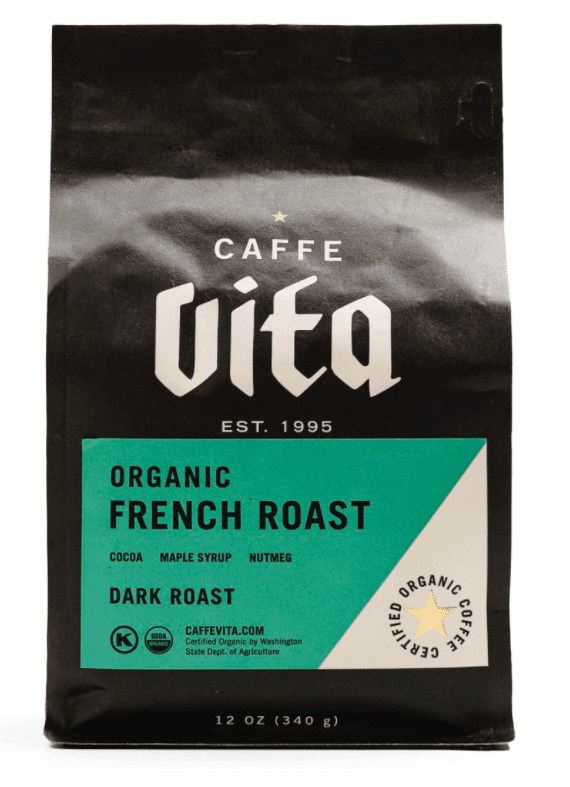
Caffe Vita Organic French Roast
Big-bodied and sweet, this dark-roasted blend features plenty of roastiness with a chocolaty body and caramel sweetness to bring it all together.
The strength and noticeable smokiness of dark French roasts aren’t for everyone, but if you enjoy them, this organic offering from Caffe Vita is worth considering. Caffe Vita roasts a combination of Central and South American, Indian, and African coffees until they’re almost black. The long roasting process gives the joe a bold flavor that comes out beautifully with an immersion brewer, like a French press.
This big-bodied, slightly sweet option’s notes of cocoa, maple syrup, and nutmeg make it good enough to drink alone. But if you don’t take your coffee black, a splash of milk or creamer complements a cup of this stuff nicely.
LAVAZZA ORGANIC ¡TIERRA! AMAZONIA COFFEE
On the surface, Lavazza’s ¡Tierra! Amazonia collection is just regular coffee. But this joe is more than that. These Peruvian organic beans (Peru is where the Lavazza Foundation devotes itself to reforestation efforts throughout the region) are the perfect pick for anyone hoping to support java producers who adhere to sustainable livelihood approaches.
This aromatic arabica bean blend comes in clutch for the java drinker who steers clear of dark roasts. Even though it’s a medium roast, it pulls quite an impressive shot of spro. No espresso machine? No problem, as these beans’ delicate floral and fruity notes also come through beautifully when you brew them with a V60.
KICKING HORSE COFFEE THREE SISTERS BLEND
Canadian-born Kicking Horse is a brand known for producing high-quality, Fair Trade, and 100 percent organic coffee. Impact on the world is number one in the company’s core values statement, and that’s why we feel confident recommending Kicking Horse organic beans to our readers.
We’re particularly fond of the Three Sisters Blend. These arabica beans come from Indonesia and South and Central America, and when blended, they create a well-balanced brew with complex flavors and notes of sweet tobacco, stone fruit, and cocoa.
If you’re a light roast lover, look into Kicking Horse’s Hola blend. On the other hand, dark roast enthusiasts will get a kick out of the brand’s Kick Ass blend; it’s one of the strongest coffees in the Kicking Horse lineup, sure to kick you into high gear.
TINY FOOTPRINT COLD PRESS ELIXIR COLD BREW COFFEE
It’s one thing for a company to be concerned about its carbon footprint, but being carbon negative is another thing entirely. Tiny Footprint manages to accomplish just that.
It takes four pounds of carbon dioxide to produce and distribute one pound of Tiny Footprint joe, but over time, the trees in Ecuador’s Mindo Cloud Forest will remove 54 pounds of CO2 from the atmosphere. More CO2 removed than emitted equals carbon negative.
The organic, Fair Trade and Rainforest Alliance Certified beans are just as impressive as Tiny Footprint’s tiny carbon footprint, and we’re particularly intrigued by the Cold Press Elixir. When you brew these 100-percent arabica beans, a mixture of Ethiopian light and dark roasts, you get a cup with a silky mouthfeel, fruity and floral notes, and a hint of cocoa.
CAMERON’S SPECIALTY COFFEE ORGANIC FRENCH ROAST
Coffee flavor snobs often turn their noses at the mere thought of a French roast, as many think the darker roast level burns away all of the green coffee beans’ natural tasting notes. However, not everyone feels that way, as the French roast is the most popular kind of organic coffee beans Cameron’s Specialty Coffee has.
These beans, which make bold and delicious cups of coffee, lack the bitter aftertaste often associated with super-dark roasts and are the perfect candidates for brewing with a French press coffee maker.
Because of Cameron’s Coffee’s dedication to social responsibility, the brand prioritizes sustainable sourcing, humanitarian efforts, and environmental awareness. Using natural rather than synthetic fertilizers and pesticides is also evidence of its commitment to protecting biodiversity and stewarding the land. Plus, the company’s small-batch roasting practices reduce water consumption.
In short, these beans aren’t just good; they’re good for the earth, too!
CAFE DON PABLO SUBTLE EARTH HONDURAN MARCALA COFFEE
Even though the word subtle is on every pack of Don Pablo Coffee Growers and Roasters’ Subtle Earth beans, the cup of coffee they brew is anything but that. The organically-grown coffee boasts a full body and rich flavors marked by hints of milk chocolate, caramel, and honey — a sweet and lovely way to start the day.
This coffee, grown in high-altitude regions in Honduras, roasts in small batches to order, ensuring you, dear coffee snob, get the freshest beans possible. Though we recommend picking whole beans when trying Subtle Earth, you can purchase these beans already ground. However, you’ll have to be sure to select the correct grind size for your preferred brewing method.
REAL GOOD COFFEE CO. ORGANIC DARK ROAST
Keep Real Good Coffee Co.’s dark roast in mind as you shop for a batch of organic beans to boost your caffeine levels in the morning. It’s safe to assume that, with the words real good in the name, these beans are just that.
We’ll let you decide whether or not the joe lives up to the brand’s moniker, but thanks to the use of 100-percent arabica beans from Central and South America and Real Good’s 30-plus years of craft roasting in Seattle, we’re assuming you’ll love what’s in your cup.
These beans brew coffee with bell pepper, cedar, and lemon notes. And the best part is that this dark roast is compatible with all brewing methods, whether you’re a pour-over pro, Moka pot maven, or someone with an affinity for the AeroPress.
PEET’S COFFEE ORGANIC FRENCH ROAST
One of the benefits of coffee brewed via French press is that the immersion brewer allows all of the beans’ natural oils to make their way into your cup, which means you end up with flavorful coffee. That’s why it’s the preferred brewing method for French roasts like these from Peet’s.
The dark beans brew bold coffee, and you don’t have to worry about missing out on any of its burnt sugar notes or smokiness with a French press.
The effort put into producing Peet’s joe is worth appreciating, as any of the beans that made it into your coffee maker have not only met USDA standards but have also met the brand’s requirements for taste and quality. In other words, Peet’s wants to make sure you get the best brew possible.
JO COFFEE NO FUN JO DECAF
It wouldn’t be right to exclude the Roasty readers monitoring their caffeine content, so we decided to include one decaf coffee offering on our list of best organic beans. Meet Jo Coffee’s No Fun Jo decaf blend. What it lacks in caffeine, it makes up for in flavor.
This medium-dark roast is USDA-certified organic and decaffeinated via the Swiss Water Process, which means no chemical solvents are involved in the caffeine extraction process, only water. As you sip a cup of this stuff, you’ll notice its full body, chocolatey flavor, and hints of blueberry.
Benefits of Sipping Organically-Grown Coffee
Organically-grown coffee is better for the environment.
Coffee plants grown according to organic standards can help reduce deforestation. Since these beans can thrive with more canopy cover than non-organic joe can, forests, their native wildlife, and their vegetation can be conserved. Some organic coffee brands even go the extra mile and donate a portion of their profits to organizations that actively work to reverse the effects of deforestation.
When these ecosystems are left largely intact, natural pest deterrents like birds and lizards remain undisturbed. Their presence reduces the need for large amounts of pesticides, and bird droppings, leaf litter, and other natural decay help fertilize the joe. So, growers won’t need to use harmful chemical fertilizers, either.
Organically-grown coffee helps the farmers.
Many farmers who adhere to the strict organic coffee production standards can also afford to be Fair Trade compliant, which ensures the producers earn a fair price. Even if coffee’s market price drops, they’ll earn enough to cover basic living expenses.
Some even claim there are long-term soil health benefits to growing crops according to organic standards. Whether or not this is true largely depends on what farmers are or are not using on their plants, though.
Frequently Asked Questions
Is organic coffee healthier?
Excluding toxic chemicals from the production process automatically makes organic beans healthier than non-organic ones. However, you can’t assume every batch of organic brew is necessarily good for you.
The organic label doesn’t account for bean quality and doesn’t guarantee the producers tested each batch for harmful mold or mycotoxins. Many of the best-rated organic coffee beans have undergone lab testing for mold and additional impurities and toxins; those tend to be the best for your body.
Does organic coffee taste different?
Some people swear that coffee grown under organic conditions tastes different than non-organic coffee beans. However, the organic production process does not affect the bold flavors in your mug. Organic coffee enthusiasts also insist these beans brew a cup of coffee that’s smoother and cleaner, but even those differences tend to be so subtle you might not notice them.
Does organic equal sustainable?
The short answer is no, not necessarily. While many companies that go through the effort of obtaining the organic label take conscious steps to use other sustainable practices in coffee production, others do not, as the organic certification has no requirements to promote or enforce sustainability.
So, there’s no guarantee that brands that grow their beans under organic conditions are financially, socially, or environmentally sustainable.
Why does organic coffee cost more?
You don’t have to browse organic coffee products very long to see that these beans tend to cost more than conventional coffee. But why? So that farmers can receive fair compensation for the intense labor and extra time required to cultivate their coffee crops organically.
What is the best organic instant coffee?
Several instant coffee offerings bear the organic label, but one of the most popular picks comes from Anthony’s Goods.
Stir these finely ground 100-percent arabica beans from Latin America into hot water, and in a few seconds, you’ll have a cup of USDA-certified organic instant java to enjoy.
A Better Way to Vet Your Coffee
Unfortunately, the organic label on a bag of beans doesn’t always mean what the company advertises it to mean. You may be getting the clean coffee you hope for, but how can you trust that the entire process of producing it was sustainable and ethical?
Brewing delicious coffee starts with thorough research, and if you want to investigate organic, ethical, and sustainable beans, you’ll have to dig deeper than usual. Most companies are open about the growing practices they use. But even if you can’t find a list of the pesticides and fertilizers used for coffee production, you can often tell whether a brand is worth supporting by how it presents itself in other areas.
Your best bet for finding a high-quality clean coffee brand is to stick to small-batch roasters and micro-lots. Don’t forget to research how closely the company works with farmers and examine its choices for packaging materials; those details often give insight into the brand’s stance on organic, ethical, and sustainable practices.
Other Certifications to Look For
It’s probably safe to assume you’re getting good joe if your bag of beans has the green USDA-certified organic seal and at least one of the following certifications.
- Rainforest Alliance Certified: Rainforest Alliance Certified coffee promotes environmental sustainability, and this certification means producers grew their beans with methods that did not harm ecosystems, banned synthetic pesticides, and fertilizers that could pollute soil and waterways from the production process, and let their farms serve as habitats for animals and other plants, contributed to reforestation efforts and managed waste in an environmentally beneficial way.
- Fair Trade: Even though a Fair Trade certification indicates that a product meets specific social, environmental, and economic standards, Fair Trade regulations focus primarily on worker rights. Under these standards, farmers and producers consistently receive fair compensation, even when market prices are low, child or forced labor is eliminated, and every worker involved in the production process gets to work in a safe, healthy environment.
- Smithsonian Bird Friendly: The Smithsonian Bird Friendly certification is somewhat rare, but when you spot it, don’t ignore it. This certification symbolizes ethical and sustainable growing conditions and indicates that farmers used fully organic methods to produce coffee beans to help foster and maintain healthy habitats for all animals, especially birds.
Is organic coffee worth buying?
So, is USDA-certified organic coffee all it’s cracked up to be, or is it just an overhyped trend only coffee snobs think is worthwhile?
Only you can decide whether or not you’ll buy these beans, but we think any joe that hasn’t made contact with harmful chemicals is worth brewing. However, you should do thorough research before buying anything.
There are plenty of options that bear the USDA organic certification, but not all of them are created equal; some of these brands use subpar beans, or worse: they don’t prioritize testing for mold or other toxins! Those are the products you’ll want to avoid.
Happy Caffeinating!

